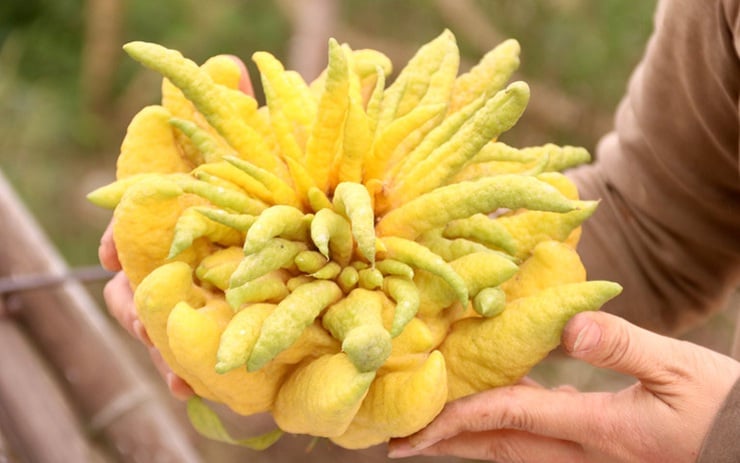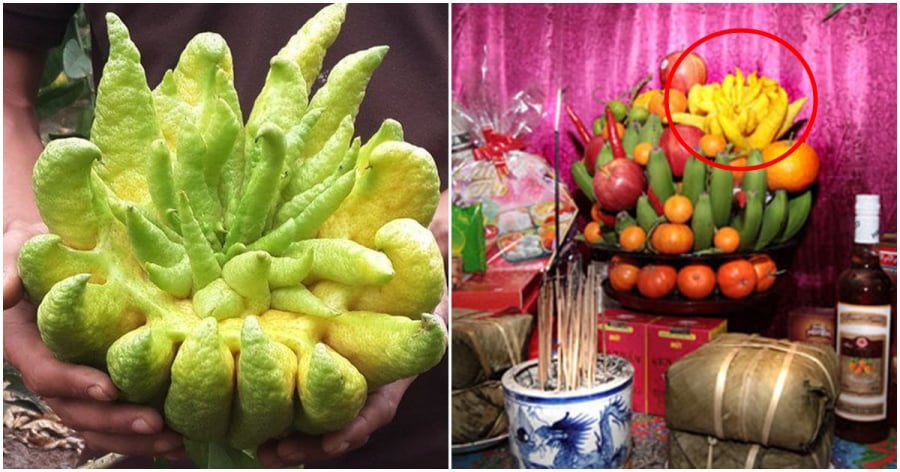The Origin of Buddha’s Hand?
Buddha’s Hand is a fruit belonging to the citrus family. In Vietnam, we call it “phật thủ” because of its shape, which resembles the fingers of Buddha. Buddha’s Hand is also known as bergamot orange, thanh yen nam ngon, and hoa quyt.
When looking at the exterior, the fruit has elongated lobes that resemble fingers. When ripe, it has a yellow citrus color and a thick, veined skin.
The beautiful elongated “fingers” of Buddha’s Hand make it a sacred fruit. Many people consider it a symbol of reverence and place it on altars.

Buddha’s Hand has a pleasant and refreshing fragrance, unlike the strong scent of grapefruit. Due to its alluring aroma, it is believed to bring blessings and protection to households. People worship Buddha’s Hand with the hope of attracting luck, prosperity, and good health in the new year.
Placing Buddha’s Hand according to Feng Shui
A beautiful Buddha’s Hand should have many “fingers,” typically around 20-30. The fingers should be arranged in multiple concentric rings, resembling a flower. The outermost finger aligning with auspicious numbers holds great value. When selecting a Buddha’s Hand, choose a large fruit with many fingers, ensuring they are long and evenly sized.

Those who appreciate Buddha’s Hand often count the fingers of the fruit. However, there is a rule to follow: Thinh – Suy – Bi – Thai. This means counting the fingers consecutively with these four words, repeating the cycle. If the last finger falls on the words “Thinh” or “Thai,” it is considered precious. These rare fruits can be very expensive, with prices reaching millions of Vietnamese dong per fruit. When placing Buddha’s Hand, it is important to position it with the palm facing outward, symbolizing Buddha’s hand protecting all living beings.
This information is for reference and contemplation purposes only.
2023 Lunar New Year Gift Ideas for Older Family and Friends
As 2021 approaches, families worldwide are gathering to celebrate the special bond between grandparents and their grandchildren. To show their love and admiration, these thoughtfully chosen gifts will bring a smile to the face of the elderly. Here, we have compiled a list of the 13 most meaningful Tet presents that can bring joy to our beloved grandparents.



































